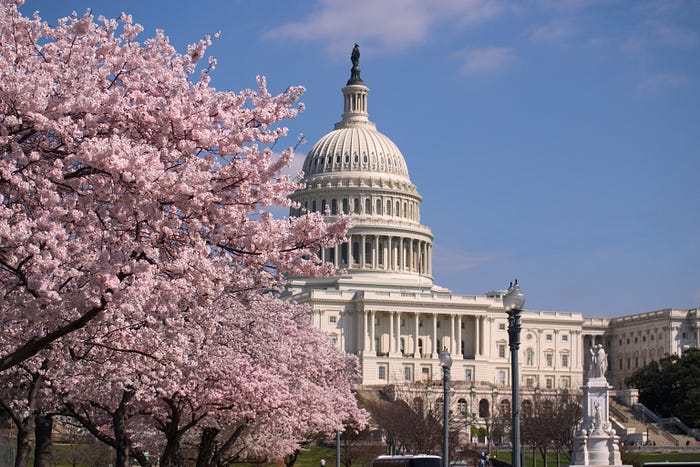The Token Taxonomy Act is back, and we need it more than ever

Today, Reps. Warren Davidson (R-OH), Darren Soto (D-FL), Josh Gottheimer (D-NJ), Ted Budd (R-NC), Tulsi Gabbard (D-HI), and Scott Perry (R-PA) reintroduced the Token Taxonomy Act (H.R. 2144). The bill was first introduced in December at the conclusion of the 115th Congress. For the reintroduction today, we’re pleased to see additional lawmakers sign on to this important proposal. We’re glad to see Congress take action to secure and promote the future of open blockchain technology.
What the bill does and why we need it
The new Token Taxonomy Act contains the same key provisions of the first bill. Most importantly, the bill defines a new term, “digital token,” and explicitly excludes these tokens from the definition of a security. This provision provides much needed regulatory certainty so that the token economy can grow.
Securities laws exist to reduce information asymmetry between investors and promoters. We believe that securities laws should apply to tokens involved in transactions where there is information asymmetry, and this bill preserves the SEC’s jurisdiction over these types of transactions.
However, some tokens work in decentralized networks where there is no central group in control, so there is very little risk of information asymmetry, and it would not make sense to apply securities laws. This bill defines tokens in those networks as “digital tokens,” and clarifies that digital tokens are not securities.
Last week, the SEC released staff guidance that aimed to provide a framework for determining when a token might be a security. The broader blockchain ecosystem has long been asking for more clarity. Unfortunately, the framework only adds more confusion. It’s our belief that SEC has failed to provide the certainty that was required to spur continued investment and innovation in this technology. The Token Taxonomy Act would eliminate this uncertainty. The bill is a crucial step forward towards a regulatory environment that will allow the US to be competitive, especially against those international jurisdictions that are increasingly crypto-friendly. This technology is too important to let regulatory uncertainty persist in the US as businesses start to look elsewhere for funding, talent, and growth opportunities.
Why the bill is more effective than the last one
While the bill does contain good edits that improve the strength of the legislative language, we are most excited about the expanded group of original co-sponsors.
Once a bill in introduced in House, it is assigned to a committee. In the case of the Token Taxonomy Act, the committee with primary jurisdiction is the House Financial Services Committee. Notably, three additional Financial Services Committee members — Rep. Josh Gottheimer (D-NJ), Rep. Ted Budd (R-NC), and Rep. Tulsi Gabbard (D-HI) — have joined the bill. These bipartisan lawmakers will be able to help educate their colleagues about the legislation and help get the votes we need to move the bill through committee.
What’s next for the Token Taxonomy Act?
The next major step in the legislative process is to secure a vote on the language of the Token Taxonomy Act in the House Financial Services Committee. This can come in the form of a vote on the Token Taxonomy Act itself or as an amendment to another piece of legislation.
This won’t happen quickly, but we strongly believe that it can happen. We have a lot of work to do because lawmakers have a lot of questions about the usefulness of the technology. At the Blockchain Association, we are doubling down on our efforts to get lawmakers and their staff the knowledge they need to make informed decisions about this policy. We are committed to seeing this legislation move forward.
In the meantime, the Token Taxonomy Act serves an important purpose. It sends a message to regulators that Congress cares about the future of open blockchain technology in the US. It provides a specific proposal for discussion and gives lawmakers who support the vision an opportunity to sign-on as co-sponsors. We have a long road ahead, but we are excited to be on the path towards regulatory clarity and bright prospects for the blockchain economy in the US.
